Lane Fox leads debate on 25th anniversary of the world wide web
- Published
The government's former digital tsar and founder of Lastminute.com Baroness Lane-Fox has led a Lords debate on the 25th anniversary of the creation of the world wide web.
Crossbench peer Baroness Lane-Fox
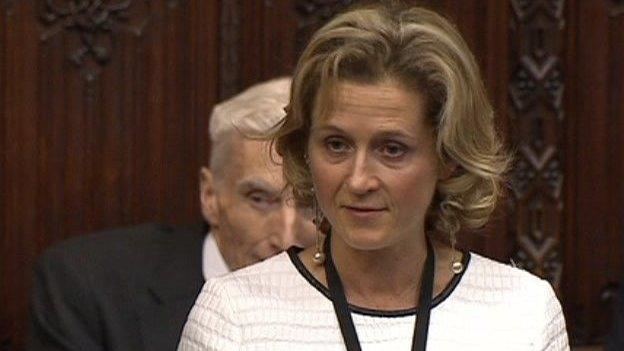
"All industries are being disrupted.
"Farmers in Ghana are saving time and money by using their smart phones to trade their products before the long walk to market begins, and underprivileged women in South Africa are breaking out of the cycle of poverty after training means that they can help US customers with their technology problems.
"Even the animal videos posted online, much mocked by some, are now enabling scientists to gather meaningful data about animal relationships that would never have been accessible before.
"But beyond the hyperbole, this 25th birthday and as part of that, I hope, this debate is a good moment to reflect on all of the different aspects of the web."

Conservative peer Lord Chadlington
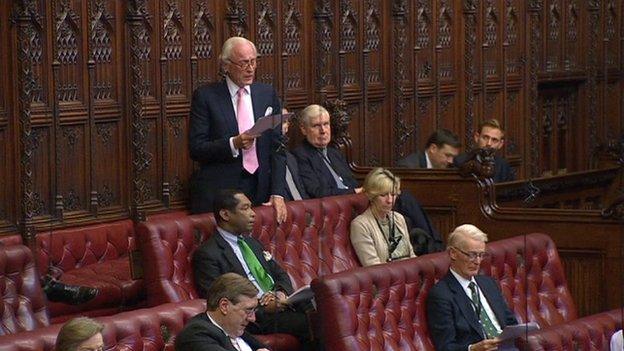
"My contribution is inspired by my first-hand experience of a 94-year-old friend who is determined not to be excluded, who has combated bereavement, loneliness, kept mentally active and even perhaps deferred or diminished the onset of mental illness by becoming internet proficient.
"In the UK today, there are 10 million people over the age of 65, and by 2050 that will be over 20 million. 11% of one-person households over state pensionable age had internet access in 2000 and today it's over 40%.
"However, my lords, there are still around six million pensioners who have never used the internet. 75% of people in the UK who are over 75 years old consider themselves lonely.
"My 94-year-old friend would never consider himself lonely. For him the internet is infinitely flexible. Online book groups, staying in touch with friends via email and text, Skype calls, downloading music and videos: that's what keeps him so alert and interested in the world outside."

Lib Dem peer Lord Clement-Jones
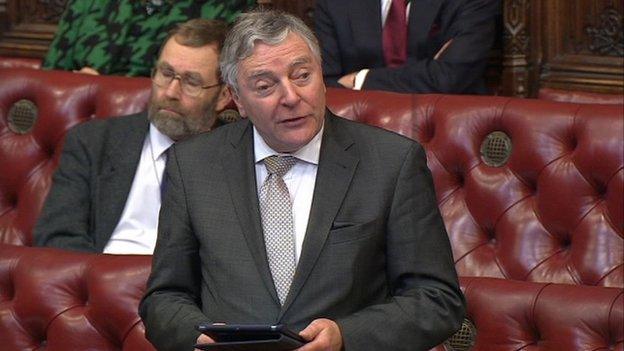
"We celebrated the universality of the web at the Olympics opening ceremony, with Sir Tim Berners-Lee tweeting: 'This is for everyone.'
"I still find the speed of development since I first used the Netscape browser quite extraordinary.
"Sir Tim and the early pioneers of the web deserve huge recognition for their setting of the open and neutral standards which ensured the growth of the world wide web."

The Bishop of Derby
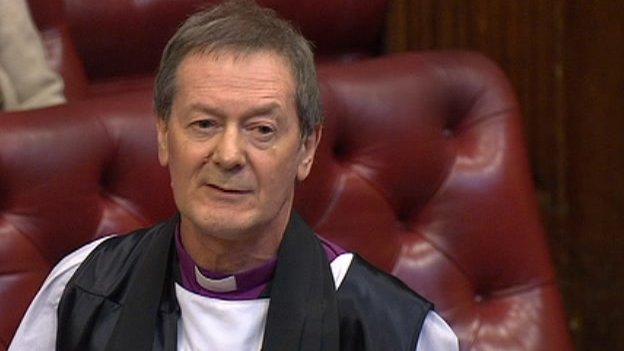
"Online pornography; the objectification of women; the bullying of young people: there's a dark side and we shouldn't be surprised at that, given that this is human nature engaging with a wonderful invention with all kinds of dark possibilities.
"I'm reminded from my experience of being a university teacher that when students in writing an essay search the web to fill up a couple of pages, you could always tell because it just didn't fit in the main argument, because they didn't understand what kind of angle it came from.
"The point of that, of course, is that information, that the web is wonderful at making available, information needs interpretation, and wisdom is interpretation on a very wide scale of the big picture."

Crossbench peer Baroness Kidron
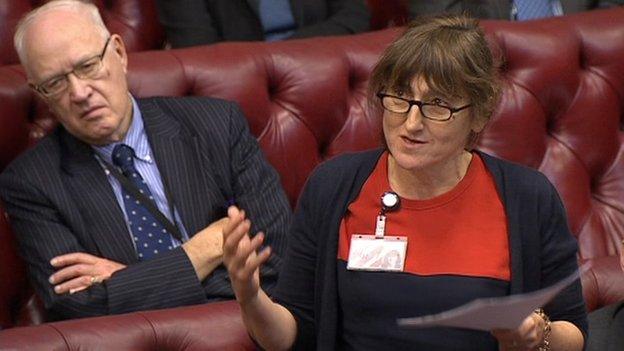
"Unlike the early cry of 'free, open and democratic', we are all aware that the web has become monetised with a value that is entirely dependent on harvesting data, data created by interacting as much as humanly possible with the commercial platforms on the web.
"The millions spent on the vast and incremental experimentation of combining neuroscience and technology to keep us attached to our devices is not actually disputed by those who do it, but it does fuel a culture of compulsion and disclosure, and distraction that has a particular implication for young people who are not yet fully formed."

Labour peer Lord Giddens
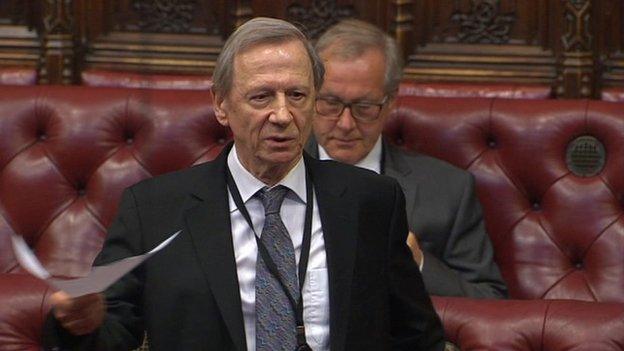
"The internet has been the greatest transformative force in history bar none, because of the speed of the transformation: 20 years.
"The invention of writing is perhaps the only parallel. That took 5,000 years and was only the prerogative of elites.
"There's never been anything like this before in history, so it's not surprising that it's rather difficult to come to terms with its long-term impact."

Labour peer Lord Puttnam
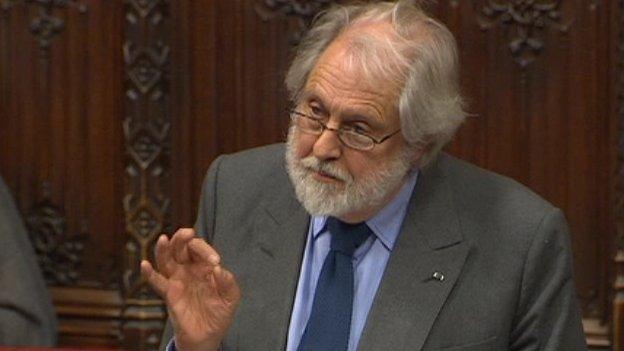
"One hundred and eighty three billion emails are sent every day. Had we had the wit at the outset to place a 1p levy on each email - these are unaudited figures, I hasten to add - it would generate today, worldwide, £730bn [a year].
"That's 29 times the amount spent by the UN and all of its agencies each year, it is more than the global aspiration for development and climate change mitigation, recommended by any agency.
"This tiny levy could totally change the landscape of aid worldwide.
"I realise it is rather late in day to suggest this, but it has another advantage: if there was such a levy, it might just allow people to pause momentarily before hitting that quite dreadful 'reply to all' button."

Crossbench peer Lord Birt
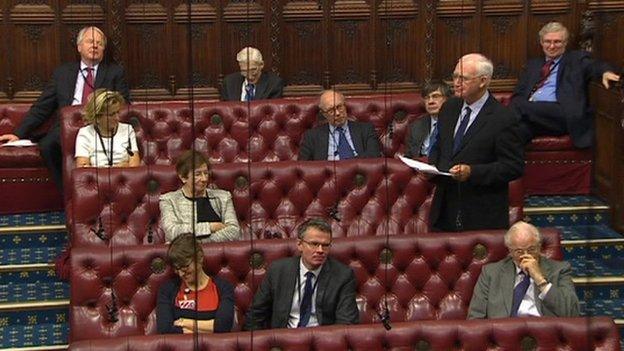
"If our banks exploited information about our private transactions in the manner of Google, there would be uproar.
"If the ugly, threatening sexist abuse that is harboured routinely on Twitter took place in the pub, it would more often be prosecuted.
"Online fraud takes place on a gigantic and global scale. In the UK we neither measure its impact on our citizens, nor do we do anything material to counter it.
"The task of the next 25 years is, without threatening in any way the precious, priceless benefits that the world wide web have brought us, is to extend to it civilised standards and the rule of law."